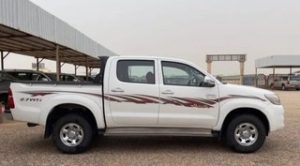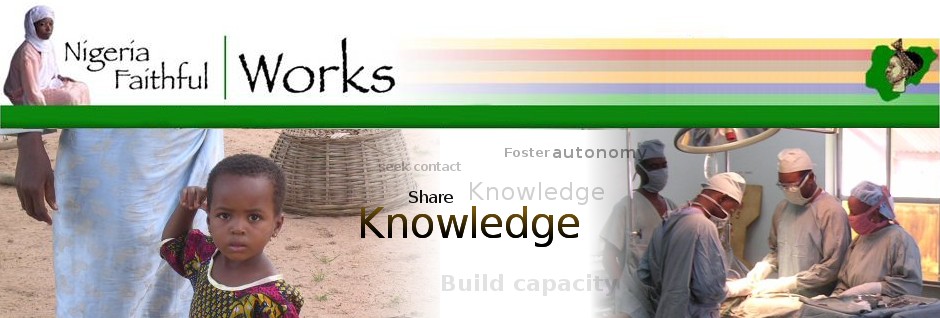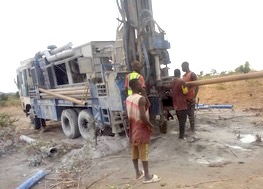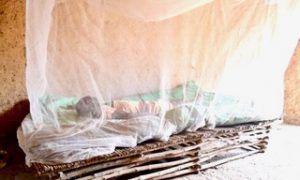Rural Health Projects
Multiple North Central States
Status: Ongoing
Project Managers: Name Withheld for Security & Baker Hill
A church in Kaduna operates a rural health project in several northwestern states, using doctors and nurses who are members of the congregation. This team serves remote and impoverished villages where new churches have been established and where there are health challenges. In recent years the church team has responded in a number of ways that include health clinics, clean water projects, medicated mosquito nets, and even mass feeding during a famine in which NFW collaborated with the mother church for Project Nourish in 2017.
 Transportation for their team has been a constant problem, since the team goes to far distant and isolated rural areas, traveling over bad or no roads. Team members have been limited to their personal cars that have low clearance and two-wheel drive. NFW helped with this in 2023 by funding the purchase of a used four-wheel drive double-cab pickup truck that can carry a team plus considerable supplies over rough terrain and through challenging places that would stop a normal car.
Transportation for their team has been a constant problem, since the team goes to far distant and isolated rural areas, traveling over bad or no roads. Team members have been limited to their personal cars that have low clearance and two-wheel drive. NFW helped with this in 2023 by funding the purchase of a used four-wheel drive double-cab pickup truck that can carry a team plus considerable supplies over rough terrain and through challenging places that would stop a normal car.
Borehole wells were needed. Numerous remote villages not only had unsafe drinking water (a major cause of typhoid fever, bilharzia, guinea worms and other problems), but also the villagers had to walk long distances for their water. With a gift from NFW in 2019, the pastor and his team contacted a well-drilling company to do geophysical surveys and then in 2020 drill boreholes with pumps in four villages, producing clean, safe water. Boreholes can be drilled very close to villages so people in those places no longer have to hand carry their water. Boreholes are also able to break through layers of rock if they are present, reaching deep aquifers of clean water. In 2021 drilled wells were provided in four more villages, followed by boreholes in four more villages in 2022. In 2023, although the price for a borehole has nearly doubled, NFW provided funds for still more boreholes in additional villages.
Mosquito nets play a key part in preventing malaria.In 2019 the rural health team tackled this problem. Malaria degrades a person’s health, and can even cause death, especially for the very young and the elderly. A episode of malaria is a serious illness, with chills, fever, and severe aches, and can sometimes last for weeks, with multiple cycles.
The health team recognized the need for many mosquito nets, which can be made impregnated with a special insecticide. This kind of netting is effective in preventing mosquito bites at night, when the insects are most active. NFW provided funds to purchase and distribute 600 of these special nets in 2019.


